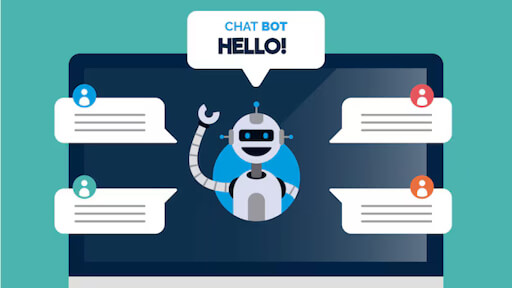 1-800-805-5783
1-800-805-5783 
Customer support has undergone a significant change over the years and continues to grow with the aid of expectations and technological improvement. Traditionally, customer support depends highly on phone, email, and face-to-face contacts. While all these are still essential, the digital age brought about a new scenario of customer service history, where live chats and social media are the greatest heroes.
The AI in customer support market is projected to grow from $2.9 billion in 2021 to $11.2 billion by 2028, at a CAGR of 21.8%. As businesses struggle to deliver an excellent customer experience, 24/7 support has become paramount, requiring highly innovative solutions that answer many inquiries wisely and effectively.
What are Virtual Agents?
Thanks to natural language processing (NLP), chatbots and power virtual agents can comprehend and react to human language naturally and intuitively.
Machine learning: These systems learn from prior interaction experiences and improve with time. AI. This is the core intelligence of virtual agents and chatbots housed here. The chatbot learns to solve problems and thus makes rational decisions. We will discuss the underlying technologies for these intelligent systems in the next section.

The advent of AI-based chatbots and intelligent virtual agents significantly alters how companies interact with their clientele. These tools enable virtual assistants with technologies such as natural language processing and learning algorithms to render help efficiently, customize the assistance dispensed, and be available at any hour.
Some other benefits of AI-powered support include the following:
Customer Satisfaction End
Cost Improvement
Improved Data Understandings

Although AI-driven chatbots and virtual agents are effective, several limitations have been identified against them.
Technical Challenges
Natural Language Understanding:
Failure to interpret complex questions and subtleties of language.
Challenges in understanding context, sarcasm, and cultural references.
Contextual Understanding:
The challenge is keeping context over several interactions.
Basic problems. Too-long conversations and complex queries are also included.
Bias and Discrimination:
AI models perpetuate biases contained within their training data.
The biased algorithm may cause some unfair treatment against certain groups of users.
Private Concerns:
Handling very confidential customer information calls for quality security.
Guaranteeing adherence to data privacy laws such as the CCPA and GDPR. Address these challenges so that AI-based customer support systems can be successfully deployed. Research on natural language processing, machine learning, ethics, and more is needed. Their leap will conquer the limitations to help create sophisticated and trustworthy virtual agents.

Advanced AI Capabilities
The bright future of AI customer support is densely interspersed with lines of development.
Integration with Other Technologies
Combining AI with other technologies will elevate the capabilities of customer support systems.
IoT and AI:
It becomes an opportunity for the business to solve the issue even before it turns sour for a customer. A virtual AI agent powered, for example, could scan IoT data from one smart device and determine potential trouble plus offer solutions.
Blockchain and AI:
The adoption of blockchain technology secures and authenticates customer interaction transparently, hence building up trust. AI-based chatbots and virtual agents can secure and rely on blockchain for customer support.
The Human Touch: A Balanced Approach
While AI-powered customer support systems have many benefits for organizations using them, it is equally essential to preserve a human touch. The best customer experience would be possible only through a balanced approach combining AI and human agents.
Hybrid Support Models: It would also mean human oversight of AI-based systems, but such oversight would be quality-oriented and accurate. Artificial Intelligence could answer routine questions, while human agents could handle more complex issues.
Ethical Matters: The development and utilization of AI for customer service is driven by concerns about bias and privacy.

With the speed of the digital era, firms are looking for new avenues to increase customer satisfaction and organizational effectiveness. Artificial intelligence-based chatbots and virtual agents in AI are becoming the face of the latest revolution for customer support.
These intelligent systems have capabilities like natural language processing and machine learning, which provide 24/7 service support, customized interaction, and practical analysis of consumer patterns.
We will expect highly advanced and efficient agents over time. In the near term, virtual agents will predictably be more emotionally intelligent, connected to IoT and blockchain devices, and able to answer complex customer questions.
The full benefit of AI customer support can be realized if organizations accept it and work on its advancement. Organizations that adopt AI will be able to save costs, enhance customer experience, and compete in the market, which is all about harnessing the power of AI to transform customer support.
1. What’s the difference between a chatbot and a virtual agent?
Chatbots follow scripts, while virtual agents use AI to understand and respond to natural language.
2. How can AI improve customer satisfaction?
AI-powered chatbots offer 24/7 support, faster response times, and personalized interactions.
3. What are the ethical concerns of AI in customer support?
Concerns include bias, privacy, and transparency in AI algorithms.
4. What’s the future of AI-powered customer support?
The future holds more advanced AI, including emotional intelligence and seamless integration with other technologies.
[x]cube has been AI native from the beginning, and we’ve been working with various versions of AI tech for over a decade. For example, we’ve been working with Bert and GPT’s developer interface even before the public release of ChatGPT.
One of our initiatives has significantly improved the OCR scan rate for a complex extraction project. We’ve also been using Gen AI for projects ranging from object recognition to prediction improvement and chat-based interfaces.
Interested in transforming your business with generative AI? Talk to our experts over a FREE consultation today!